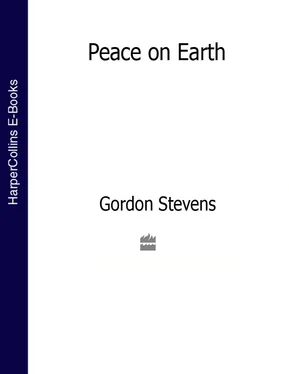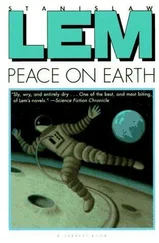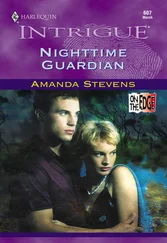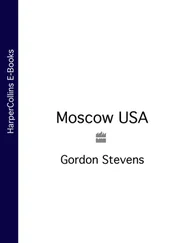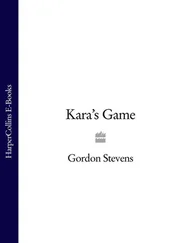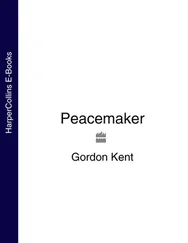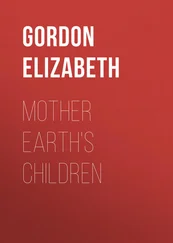‘Your man?’
‘The man I get them from.’ He used the present tense, as if he had a regular supply.
‘You can get more?’ The dealer took the first bait. Yakov Zubko thought of Alexandra and the children standing behind the table when he had returned home the previous evening. ‘Not this week, probably next, definitely the week after.’
‘New like these?’
‘With the manufacturer’s labels. Any size you want.’
‘A hundred.’
‘A hundred and forty.’
‘A hundred and ten.’
We are going home, Yakov, Alexandra had said, giving him the papers from Kolpachny Lane, we are going home to Israel. ‘A hundred and thirty and they’re yours.’
‘How many others can you get?’ The dealer had always been greedy, now he showed it.
‘Three, four pairs a fortnight.’ He was watching the man’s eyes. ‘To start with,’ he added, ‘more if I can guarantee my man a good price.’ He could see the dealer trying to work out his source. An American, the man would be thinking, probably a businessman with regular trips to Moscow, the denims only the start of things. Yakov Zubko reinforced the image: ‘What about perfume?’
‘French?’ The tone in the man’s voice gave him away.
‘Of course.’
‘I’d like to meet your man.’
‘You must think I’m mad.’ Believe what you’re saying, Yakov Zubko, he told himself, make him believe what you’re saying.
‘A hundred and twenty-five each.’
‘A hundred and twenty-five each,’ he agreed. Enough for the visas and the renunciation, he thought, but not nearly enough for the tickets.
The man pulled a roll of notes from beneath his winter coat. It was more money than Yakov Zubko had seen in all the seven years since he and Alexandra had applied to leave Russia. ‘About the perfume,’ he said, taking the bottles from the bag, watching the way the dealer’s eyes flicked from the money to the contraband, seeing again the greed. The man reached forward to take them, Yakov Zubko moved them back.
‘Genuine?’ asked the dealer.
‘Seals and tops unbroken,’ confirmed Yakov Zubko.
‘Fifty each.’ It was the dealer who made the first offer.
‘A hundred.’
‘Seventy-five.’
‘Seventy-five.’ He had the tickets for the children, plus something towards the fare for Alexandra. ‘And a good price for this.’ He took the camera from the bag. ‘Only a sample,’ he lied, ‘one a fortnight, make and model specified three weeks in advance, for as long as you like. Guaranteed delivery.’
‘Anything else?’
‘You say, I’ll ask.’
‘A hundred.’
‘Plus films.’
‘A hundred and ten.’
‘A hundred and thirty.’
‘A hundred and twenty.’
He had their tickets to Vienna, plus something for his brother and his brother’s family when Stanislav and Mishka were allowed to leave. ‘A hundred and twenty,’ he agreed.
* * *
The flat was empty, the single suitcase in the middle of the kitchen floor where the table had stood. The children were frightened, he had not told them what was happening or where they were going in case they did not get there, in case the men from Petrovka came for him.
‘Mummy says that today you will take us all for a train ride,’ said his son. Yakov Zubko put his hand on the boy’s head. ‘Your mother is right,’ he smiled, ‘today I will take us all for a train ride.’
‘But why have they taken the chairs and tables?’ the boy asked. ‘Why have they taken my bed?’
‘Because today,’ his father told him, ‘we are going for a train ride.’
At three o’clock the friend from whom Stanislav sometimes borrowed the car for the family trips to the countryside came to take them to the station. Stanislav and Mishka, and their two children, would accompany them. They arrived at three forty-five, an hour and fifty minutes before the train was due to depart. In the square opposite was a Zhiguli similar to the one outside the house of Pasha Simenov. Yakov Zubko thought about the man and wondered where he was, if he had been caught, if he knew enough about him to betray him. He had not told Alexandra and did not tell her now; he had already decided not to tell her until they were in Israel, did not understand that she suspected.
The station was crowded. It took the officials twenty minutes to check the documents and tickets, twenty minutes for the people behind him to worry about their trains, and for Yakov Zubko to worry about Pasha Simenov. By the time he had been cleared, there was still an hour remaining. The two families sat together for the last time, not speaking. After thirty minutes they went to the square outside and asked the friend who had brought them to take a photograph of them together.
The photograph that was taken that day showed the men staring straight ahead, trying to hide their emotions, the women having the strength not to conceal theirs, the children holding hands, confused. Even in the noise of the square Yakov Zubko could hear the girl called Natasha fighting for her breath. At five minutes to five they said farewell: the words they would remember later, the only words they would remember when they had reason to remember, were the last words Yakov Zubko spoke to his brother.
‘B’shavia Haba a b’Yerushalaim.’
His brother could no longer hold back his tears. ‘B’shavia Haba a b’Yerushalaim,’ he said, ‘next year in Jerusalem.’
* * *
At seventeen minutes past twelve the following day, a mere seven minutes late, the Moscow-Vienna express carrying Yakov Zubko arid his family passed from the Eastern Bloc into Austria. The final check was remarkably brief, their papers were inspected, their single suitcase given the most perfunctory of inspections, and they were waved through. At three minutes to one that afternoon Yakov Zubko and his wife and children stepped into the West. Twenty metres away stood a woman from the Jewish Agency.
‘Shalom,’ she said, stepping forward to greet them. ‘Welcome.’
‘Shalom,’ he said, putting down the suitcase. ‘We are the family Zubko. We are coming home.’
Book Two
CHAPTER ONE
The MORI poll predicting a landslide victory for Ronald Reagan was on the second page of the International Herald Tribune. The man reading it sat in the chair in the corner of the room farthest from the window, between the sofa and the desk. The paper, one day old, had arrived that morning; he had not stopped reading the article, not stopped thinking about it, all day. The only person he had spoken to during that time, the only person he allowed to be in his presence, was the young man seated on the sofa.
The room, on the third floor of the complex, was neat and sparsely furnished, the walls a bare white. The only ornaments on the desk on the left side of the window were a chess set and a framed photograph of a young family, the children in the arms of their parents. Abu Nabil had aged almost thirty years since it was taken, though he could still be recognised in it; he kept and treasured it because it was the only photograph he had of his wife and sons; others kept and valued it because it was the only photograph of Abu Nabil known to exist.
At the side of the young man on the sofa lay a submachine gun.
It was two hours to midnight.
‘The car in ten minutes,’ Nabil told him. ‘Saad at eight, Sharaf at nine.’ The bodyguard went to the telephone and dialled two numbers, passing on his master’s instructions. The young men who took the calls, to be passed in turn to their masters, were surprised neither at the contents of the order not at the time it had been issued.
At fifteen minutes past ten Nabil left the safety of the complex in a black Mercedes, accompanied by three escorts, two to stay with him wherever he went and one to remain with the car. Even in Damascus, which he had made his home and base for the past six years, it was as unthinkable that his car should be left unattended as it was that he himself should not be protected. Not because of what might be missing from the car when he returned; rather for what might be added to it, as the Israelis had demonstrated during the maelstrom which had swept Europe after the massacre at the 1972 Munich Olympics, as the IRA and, he suspected, the British army itself, had proved in Northern Ireland.
Читать дальше
